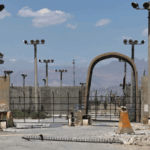Behind the 20-year U.S. military presence in Afghanistan lies a story of power, privilege, and poker nights. New revelations from Abdul Satar Saadat, legal advisor to former Afghan President Ashraf Ghani, expose how foreign-backed young elites—dubbed ‘Whiskey Boys’—rose to power through a controversial ‘generational change strategy.’
🔍 What’s the tea? Under Ghani’s leadership, Western-educated Afghans in their 20s and 30s were fast-tracked into high-ranking roles. But instead of reform, many allegedly embraced luxury lifestyles in Kabul’s diplomatic zone, funded by what critics call ‘corruption cash.’ U.S. embassy staff reportedly coined the term ‘Whiskey Boys’ after witnessing their lavish poker games and whiskey-fueled parties.
💡 Why it matters: This insider account sheds light on how foreign influence and local ambition collided, leaving ordinary Afghans disillusioned. The strategy aimed to modernize governance but became a symbol of elitism as the Taliban regained control in 2021.
🌏 The bigger picture: While Washington promoted ‘democratic reforms,’ critics argue programs like these prioritized optics over real systemic change—a cautionary tale for nation-building efforts worldwide.
Reference(s):
cgtn.com




